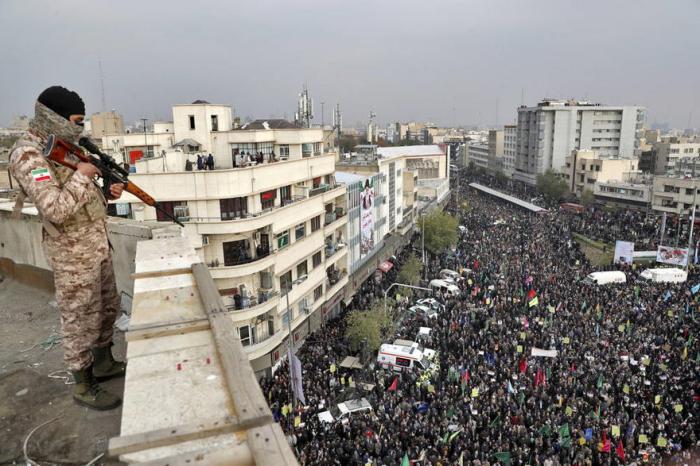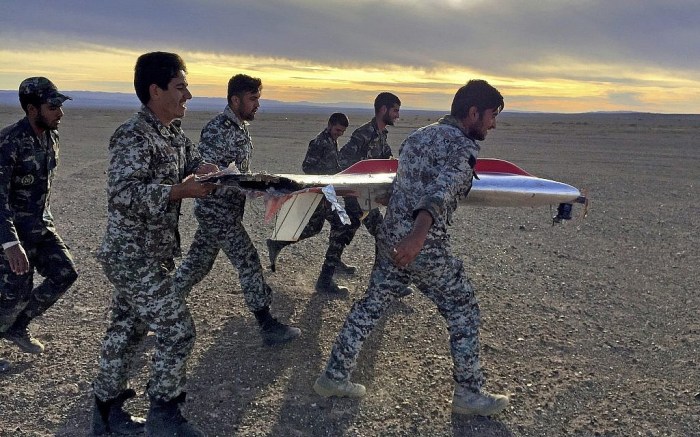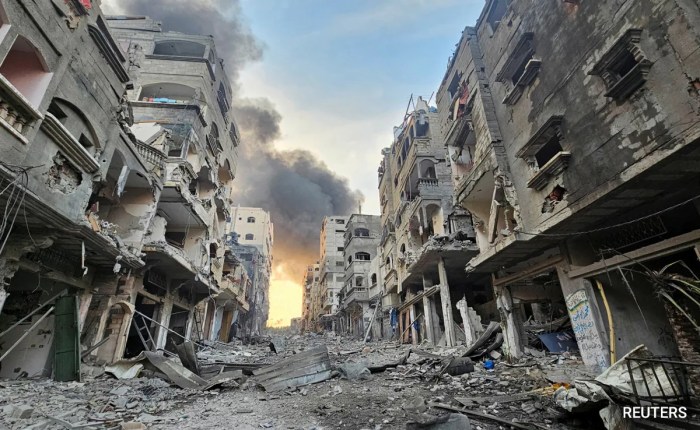Latest News Iran And Israel: A complex and volatile relationship that has shaped the Middle East for decades. From historical conflicts to current tensions and international diplomacy, this topic delves into the intricacies of this geopolitical rivalry.
The historical relationship between Iran and Israel, marked by significant events and key figures, has laid the foundation for the current state of affairs. Major conflicts and diplomatic efforts have shaped the dynamics between the two countries.
Historical Context
Iran and Israel have a complex and often tense relationship that dates back to the ancient world. The two countries have been involved in numerous conflicts and diplomatic efforts over the years.
One of the most significant events in the history of Iran-Israel relations was the 1979 Iranian Revolution, which led to the overthrow of the pro-Western Shah of Iran and the establishment of an Islamic republic. The new Iranian government was hostile to Israel and supported groups like Hezbollah and Hamas that were dedicated to Israel’s destruction.
Major Conflicts
- 1948: Arab-Israeli War
- 1967: Six-Day War
- 1973: Yom Kippur War
- 1980-1988: Iran-Iraq War
- 2006: Lebanon War
- 2011-present: Syrian Civil War
Diplomatic Efforts
- 1979: Camp David Accords
- 1991: Madrid Peace Conference
- 1993: Oslo Accords
- 2000: Camp David Summit
- 2007: Annapolis Conference
- 2015: Iran nuclear deal
Current Tensions

Iran and Israel maintain a tense relationship, marked by historical animosities, ideological differences, and conflicting regional interests. Their disagreements stem from various issues, including nuclear proliferation, regional influence, and support for proxy wars.
Nuclear proliferation is a major concern for Israel, which views Iran’s nuclear program as a threat to its security. Iran, on the other hand, maintains that its nuclear program is solely for peaceful purposes.
Regional influence is another point of contention. Iran seeks to expand its influence in the Middle East, while Israel views this as a threat to its own regional dominance. Both countries have been involved in proxy wars in the region, supporting different sides in conflicts such as the Syrian civil war and the conflict in Yemen.
Nuclear Proliferation
- Israel’s primary concern is Iran’s nuclear program, which it believes could lead to the development of nuclear weapons.
- Iran insists that its nuclear program is solely for peaceful purposes, such as energy production and medical research.
- The 2015 Joint Comprehensive Plan of Action (JCPOA) aimed to limit Iran’s nuclear program in exchange for sanctions relief.
- However, the US withdrew from the JCPOA in 2018, and Iran has since resumed some nuclear activities.
Regional Influence
- Iran seeks to expand its influence in the Middle East, particularly through its support for Shia militias in Iraq, Syria, and Lebanon.
- Israel views Iran’s growing influence as a threat to its own regional dominance and security.
- Both countries have been involved in proxy wars in the region, supporting different sides in conflicts such as the Syrian civil war and the conflict in Yemen.
Regional Impact
The Iran-Israel conflict has significant implications for regional stability and security. The two countries are key players in the Middle East, and their ongoing tensions have the potential to escalate into a wider conflict that could destabilize the entire region.Other
countries in the region are also affected by the Iran-Israel conflict. Saudi Arabia, for example, is a close ally of the United States and a major rival of Iran. Saudi Arabia has been accused of supporting Sunni extremist groups that are fighting against Iran and its allies in Syria and Yemen.
Russia, on the other hand, has been accused of providing military support to Iran and its allies.The United States has been trying to mediate the conflict between Iran and Israel, but so far its efforts have not been successful. The United States is concerned that a wider conflict between Iran and Israel could lead to a disruption of oil supplies and a rise in global oil prices.
Role of Other Countries
The United States, Russia, and Saudi Arabia are all major players in the Middle East, and their actions have a significant impact on the Iran-Israel conflict.The United States is a close ally of Israel and has been providing it with military and financial support for decades.
The United States is also a major supplier of arms to Saudi Arabia.Russia is a close ally of Iran and has been providing it with military and financial support for decades. Russia is also a major supplier of arms to Iran.Saudi
Arabia is a close ally of the United States and a major rival of Iran. Saudi Arabia has been accused of supporting Sunni extremist groups that are fighting against Iran and its allies in Syria and Yemen.
Amidst the escalating tensions between Iran and Israel, let’s take a momentary pause to revisit the timeless classic From Here To Eternity Cast . This iconic film captures the essence of human resilience and the complexities of love and war.
As we return our focus to the current geopolitical landscape, may we find inspiration in the enduring lessons of this cinematic masterpiece.
International Diplomacy

International diplomacy plays a crucial role in mitigating tensions between Iran and Israel. Efforts have been made through various initiatives, such as the Iran nuclear deal and the Oslo Accords.
The Iran nuclear deal, also known as the Joint Comprehensive Plan of Action (JCPOA), was a significant diplomatic achievement. Negotiated in 2015, it aimed to prevent Iran from developing nuclear weapons in exchange for the lifting of economic sanctions.
Effectiveness of the Iran Nuclear Deal
- The deal was initially successful in reducing Iran’s nuclear capabilities and preventing the development of nuclear weapons.
- However, the deal’s effectiveness was challenged after the United States withdrew in 2018 and reimposed sanctions on Iran.
- Iran subsequently resumed some nuclear activities, raising concerns about the deal’s long-term viability.
The Oslo Accords, signed in 1993, were another major diplomatic initiative aimed at resolving the Israeli-Palestinian conflict.
Effectiveness of the Oslo Accords
- The Accords established the Palestinian National Authority (PNA) and provided a framework for future negotiations.
- However, the implementation of the Accords has been challenging, and the conflict remains unresolved.
- Criticisms of the Oslo Accords include concerns over Israeli settlements in the occupied territories and the lack of progress towards a two-state solution.
Despite these challenges, international diplomacy remains essential in addressing the complex and multifaceted conflict between Iran and Israel. Continued efforts are needed to find peaceful and sustainable solutions.
While the world focuses on the escalating tensions between Iran and Israel, it’s important to spare a thought for the victims of today’s tragic Clackline Accident. This incident, which occurred in Clackline Accident Today , serves as a grim reminder of the dangers lurking in our everyday lives.
As we continue to monitor the latest news from Iran and Israel, let us extend our condolences to those affected by this heartbreaking event.
Future Prospects
The future of Iran-Israel relations remains uncertain. Several factors could contribute to improved or worsened relations, including changes in leadership, geopolitical dynamics, and the progress of nuclear negotiations.
The latest news from Iran and Israel has been met with mixed reactions. Some are calling for peace, while others are demanding justice. If you’re looking to unblock someone on Snapchat, here’s how . The situation between Iran and Israel remains tense, and it’s unclear what the future holds.
Changes in Leadership, Latest News Iran And Israel
A change in leadership in either Iran or Israel could significantly impact relations. If a more moderate leader is elected in Iran, it could lead to a thaw in relations with Israel. Conversely, if a more hardline leader is elected in Israel, it could lead to a further escalation of tensions.
Geopolitical Dynamics
The geopolitical dynamics in the Middle East could also play a role in the future of Iran-Israel relations. If the region becomes more stable, it could create an environment in which Iran and Israel are more likely to find common ground.
However, if the region becomes more unstable, it could lead to increased tensions between the two countries.
Nuclear Negotiations
The progress of nuclear negotiations between Iran and the United States could also have a significant impact on the future of Iran-Israel relations. If a deal is reached, it could lead to a reduction in tensions between Iran and Israel.
However, if no deal is reached, it could lead to further escalation.
Media Coverage

The media plays a crucial role in shaping public opinion and influencing policy decisions on the Iran-Israel conflict. The portrayal of the conflict in the media has a significant impact on how the public perceives the issue and the potential solutions.
The media’s coverage of the conflict is often biased towards one side or the other, depending on the political and ideological orientation of the media outlet. This bias can lead to a distorted and inaccurate representation of the conflict, which can have a negative impact on public understanding and policy decisions.
Sensationalism and Media Bias
The media’s focus on sensationalism and conflict can lead to an oversimplification of the issues involved in the Iran-Israel conflict. This can make it difficult for the public to understand the complex historical and political factors that have led to the conflict, and can also lead to a more polarized and conflict-oriented view of the situation.
The media’s bias towards one side or the other can also lead to a distorted view of the conflict. This bias can be seen in the way that certain events are reported, the way that different sides are portrayed, and the way that the conflict is framed.
This bias can have a significant impact on public opinion and policy decisions, as it can lead to a one-sided view of the conflict and a lack of understanding of the other side’s perspective.
Conclusive Thoughts
The future prospects of Iran-Israel relations remain uncertain, influenced by factors such as changes in leadership and geopolitical dynamics. The media’s portrayal of the conflict plays a crucial role in shaping public perception and policy decisions.
Questions Often Asked: Latest News Iran And Israel
What are the key issues driving tensions between Iran and Israel?
Nuclear proliferation, regional influence, and proxy wars are among the primary drivers of tensions.
How has the Iran-Israel conflict impacted regional stability?
The conflict has contributed to instability and security concerns in the Middle East, with implications for neighboring countries and international actors.
What role have international efforts played in resolving the conflict?
Diplomatic initiatives such as the Iran nuclear deal and the Oslo Accords have aimed to address the conflict, with varying degrees of success.